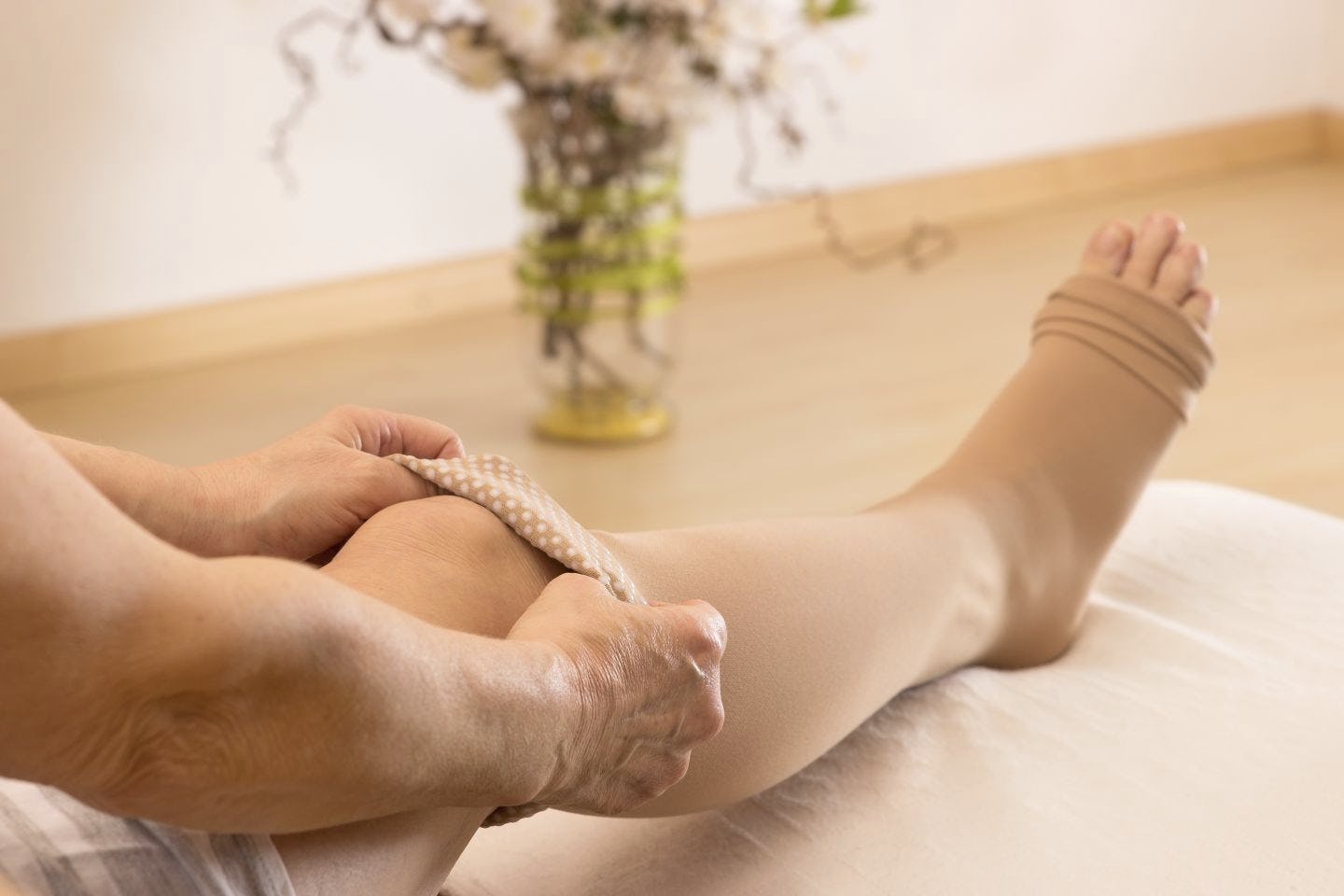
At Albany Sport and Spine Physical Therapy we understand the critical role in the management and care of lymphedema, a chronic condition characterized by edema. Lymphedema can occur when the lymphatic system is compromised, either due to surgery, radiation, infection, or genetic factors. The primary goal of the lymphedema program at Albany Sport and Spine is to reduce edema, manage pain, and improve the patient's mobility and quality of life. Amy Seastone, PT, DPT, CLT and Alicia Fitzgerald, PTA are specialists in lymphedema care and can guide patients through specific exercises, techniques, and interventions tailored to the severity of their condition.
One of the cornerstone treatments used by Amy and Alicia is manual lymphatic drainage (MLD). This specialized manual technique assists the lymphatic system and encourages the movement of lymph fluid for reduced edema and improved lymphatic flow. MLD is typically combined with other approaches like compression therapy, which uses bandages or compression garments to help maintain the reduction in edema. These treatments are particularly useful in helping prevent the fluid from accumulating and are tailored to the patient’s needs.
At Albany Sport and Spine Physical Therapy we will educate you on exercises that can help with lymphatic drainage. These exercises are often low-impact and focus on moving the affected limbs in a way that encourages the flow of lymph fluid through the body. Additionally, Amy and Alicia will provide guidance on proper posture and body mechanics, helping individuals with lymphedema move and perform daily activities safely while minimizing stress on the affected areas. For those with more severe lymphedema, physical therapy can offer strategies to improve balance and prevent falls, as well as strengthening exercises to address any weakness resulting from long-term edema.
Lymphedema care and physical therapy are an essential partnership in improving quality of life. Not only do these interventions address the physical aspects of lymphedema, but they also empower patients with the knowledge and skills to manage their symptoms and live more comfortably. Early intervention and consistent management through physical therapy can reduce the progression of the disease and help individuals maintain greater independence in their daily lives, so they can work, live and play…. again.
